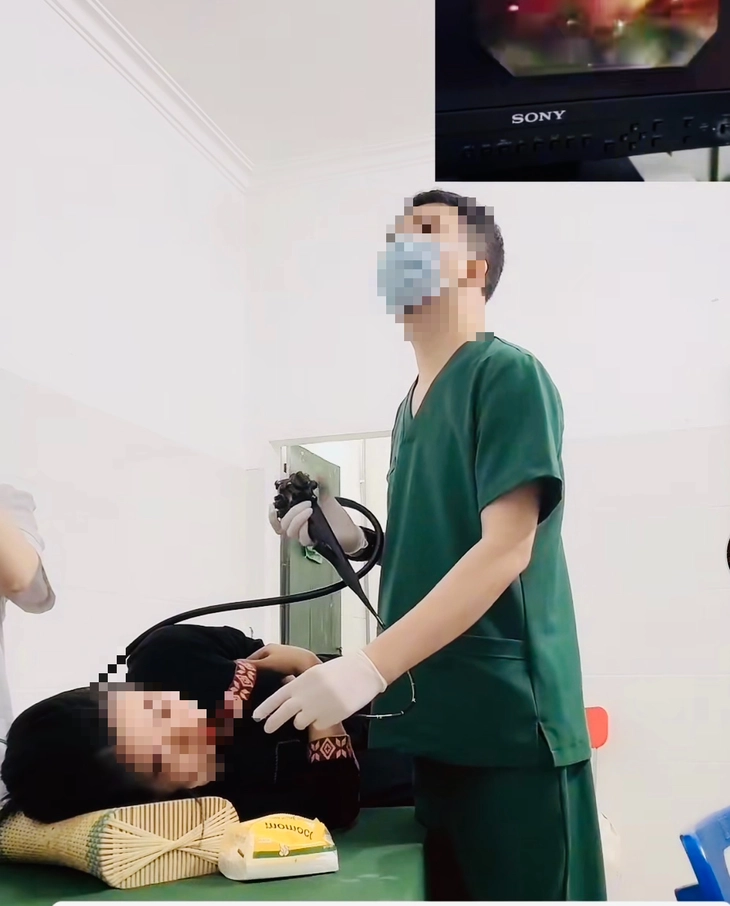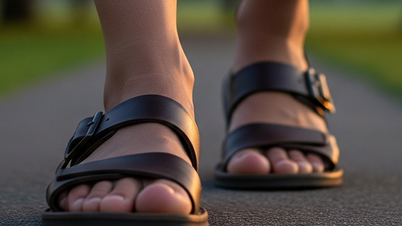
Many videos appeared on social networks showing people examining patients - Photo: Screenshot
After Tuoi Tre Online published a series of articles: "Doctor livestreaming while examining pregnancy, is it in accordance with regulations?", "Ho Chi Minh City Department of Health : We need to strongly condemn medical practitioners who take pictures and record patients without permission" and "Doctor Cao Huu Thinh: "I did not post videos online without permission, I asked for the patient's permission" received a lot of feedback from readers.
Many people expressed outrage at Dr. Cao Huu Thinh's actions and suggested severe sanctions according to regulations.
Why don't doctors comfort the patient but instead post pictures of them on social media?
Many readers expressed outrage that doctors posting images and information of patients online without permission is very offensive and affects the patient's privacy.
It is worth mentioning that there are still many videos appearing on social networks that show the patient's voice even though their face is covered. Does this violate the patient's privacy?
Reader An pointed out the reality: currently, many videos posted on social media have doctors examining while livestreaming or filming. When commenting on the article about not keeping the patient's privacy, the doctor said "recording the sound without showing the face to warn".
"Doctors should not post videos or livestreams because it will greatly affect patients in the future. Please think carefully because sometimes when you go to see a doctor, the doctor asks for permission but for some reason the patient does not dare to refuse this request," noted a reader with email nguy****@gmail.com.
Sharing the same opinion, reader Thu said that when a patient comes for treatment, the general mentality of the patient is to listen to whatever the doctor says, and it is difficult to refuse when asked.
"Does the doctor ask and then refuse? The main thing is the way you speak," reader Thu further analyzed.
According to reader 0919******59: "This is an extremely sensitive issue and sometimes a source of anxiety and pain for women.
Doctors should not make them sadder by saying such things, but should encourage and comfort them gently and find ways to help and cure them.
Reader DucNguyen suggested that those who disclose personal information should be strictly punished, and that the plaintiff has the right to request compensation, which would be enough of a deterrent.
Even if the patient agrees, the image cannot be used to attract views.
Not only do readers think that it is not appropriate for doctors to post videos and pictures of patients on social networks, but readers who say they are doctors also feel upset with the way videos on the internet use pictures of patients to attract views.
"I am also a doctor with many years of experience in the profession, but I am also very upset when I see patients being exploited for views. Even with the patient's consent, it is not allowed to go against one's conscience - a doctor who treats patients," emphasized a reader with the account huut****@gmail.com.
Reader An affirmed: "This is an act strictly prohibited by law and violates medical ethics."
“Whether the patient allows it or not, livestreaming will cause distraction during the examination. That is not allowed,” reader Tra Hoa refuted the doctor’s opinion.
According to reader with email drtr****@gmail.com, doctors should not use private, confidential images of patients that cause offense.
“I don’t think patients would agree if they knew there was a camera in the clinic. Surely no real and conscientious doctor would agree with this approach,” reader Hoang said.
Speaking to Tuoi Tre Online on May 30, Associate Professor Nguyen Hoai Nam - President of the Ho Chi Minh City Phlebology Association - said that patient information and images are considered confidential and should be kept confidential.
However, with the emergence and development of social networks, the use of patient images has become much more popular than before.
"It is mandatory to ask for permission from patients when using their images or interviewing them, even if it is only verbal permission initially, but there should be written consent," Associate Professor Hoai Nam pointed out.
According to Associate Professor Nam, if only covering the patient's face when filming or livestreaming still does not ensure confidentiality, because the voice and content of the conversation can reveal the identity. Therefore, there needs to be strict legal regulations and sanctions to control this issue.
The doctor uses illustrations to simulate for the viewer.
Known to many people from his personal TikTok channel, Dr. QN (currently working at a tertiary hospital in Ho Chi Minh City and having a clinic in the city) regularly posts videos providing advice or popularizing reproductive knowledge, along with recommendations.
The doctor's video frames usually only have him speaking (no sound or image covering the patient's face) with some simulated illustrations to help viewers visualize better.
Source: https://tuoitre.vn/bac-si-cao-huu-thinh-noi-dang-video-co-xin-phep-benh-nhan-ban-doc-van-thay-khong-dung-y-duc-2025053013293484.htm


























































































Comment (0)